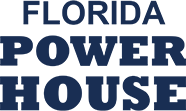Wondering what are the types of generators for your home?
When selecting a generator for your home, there are three main types. Whole house, portable, and inverter generators. They all serve as a great solution for anytime a power outage occurs.
Despite serving the same purpose, they can differ. Below we dig deeper into the various types of generators.
RESIDENTIAL GENERATORS
There are different types of generators that you can have installed in your home. It just depends on where your home is geographically located, and what you are looking to power.
Let’s take a look at the different types of generators available for homeowners:
PORTABLE GENERATORS:
There are different types of portable generators based on the wattage, and how long the generator runs depends on how many appliances it is powering.
- Small Portable Generators – These generators are ideal for short power outages and typically last a few hours. On average, they provide less than 3,000 watts of power. Most homeowners use this type for smaller appliances like microwaves or lights.
- Medium Portable Generators – These generators have larger fuel tanks than the smaller generators, but they still only provide about 3,000-6,000 watts of power on average. With this type, you can usually use a few appliances at the same time, and they will run for a longer period of time.
- Large Portable Generators – These generators have the ability to power a few rooms at the same time. Instead of using an extension cord like the two types above, you turn this on via a transfer switch. On average, these generators provide anywhere from 6,000-9,000 watts of power.
- Extra Large Portable Generators – This is the largest generator available when it comes to portable generators. On average, the provide about 10,000 watts of power or more. This type of generator usually has an electric start button or a manual transfer switch.
INVERTER GENERATORS:
Inverter generators are used to power electronic devices that may be sensitive when powering, such as computers or cellphones.
STANDBY OR WHOLE-HOUSE GENERATORS:
While portable generators are made to last for a few hours, standby or whole-house generators can last for a few days or even a few weeks depending on the wattage.
These types of generators are:
- Permanent: They do not move unlike portable generators, which must be carried around from place to place. Standby and whole-house generators only to be installed one time by a specialist. You can power these generators via natural gas, propane, dual fuel, or diesel.
- Automatic: These types of generators automatically turn on when they detect a power outage, unlike portable generators which require someone to manually turn on a switch.
- Output: Standby generators can usually provide up to 150 KW of clean power to handle all of your appliances, including sensitive electronics.
GENERATORS FOR MOBILE HOMES:
For those that reside in mobile homes, a portable generator is typically your best bet, however, you will want to make sure your community does not have any noise restrictions. If it does, you can opt for a quieter, inverter generator.
You may be able to invest in a standby generator, but we recommend checking with your mobile home park or community first to ensure it is allowed.
If you reside in an RV, there are specific requirements for generators, so be sure to research this prior to making a generator purchase.
GENERATORS FOR APARTMENTS:
In most apartment complexes, you are prohibited from using any type of gas-powered generator unless it is at least 10 feet away from all windows and doors. This is because the generator’s engine gives off exhaust, which contains carbon monoxide.
You can, however, opt for a solar-powered portable generator, which can be charged through a wall outlet when you have your mainline power in place so that it is ready to go when the power goes out. While these do not provide much power, they are useful in powering your most significant essentials for a few hours until the main power is restored.
CHOOSING THE RIGHT GENERATOR FOR YOUR HOME
In conclusion, there are many different options when it comes to purchasing a generator for your home. For more information on residential generators, please contact us today at (305) 745-7720.


